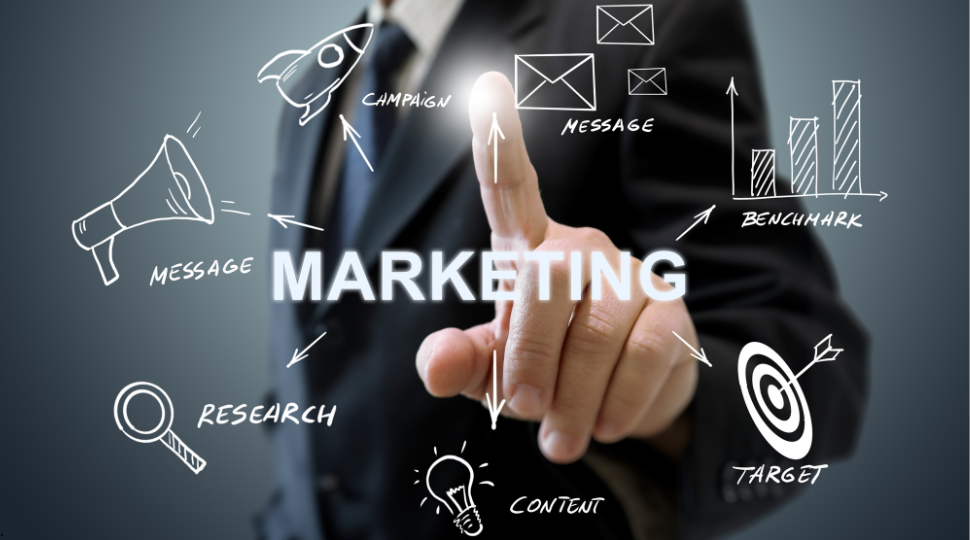Performance Marketing or Brand Marketing: What Works Best for You?


In today's fast-paced digital era, companies are compelled to select the best way of marketing in an attempt to gain what they require. Some companies are concerned about generating a quick sale and quantifiable ROI, while other companies are concerned about generating long-term awareness and image. That is where the case of Performance Marketing and Brand Marketing comes in.
Both approaches have their drawbacks, but where do you place your bets? In this blog post here, we will cover the key differences, the advantages, and how to decide which one is ideal for your company's application.
Performance marketing is action-based marketing where sponsors pay for actual action like clicks, leads, or conversions. It is real-time measurable performance-driven and applied mainly in PPC marketing, social advertising, and affiliate marketing.
Performance marketing is very ROI-oriented, where each dollar spent is monitored and optimized to gain maximum return. It is metric-based and analytics-driven, using real-time campaign effectiveness measurement and maximization. That results are immediate means business houses can expand profitable campaigns at extremely fast speeds while reducing loss on failed campaigns. The operation is very target-specific, and brands can select to target wanted segments of the audience with tailor-made ads.
Some of the most effective mediums of performance marketing are Pay-Per-Click (PPC) Advertising such as Google Ads and Facebook Ads, Affiliate Marketing where companies collaborate with influencers or websites on a commission basis, Social Media Advertisements on Instagram, LinkedIn, and TikTok, and Email Marketing Campaigns to produce leads.
Day-to-day performance marketing is employed by e-commerce companies, SaaS companies, and even start-ups who require instant scaling. Companies can equip themselves with the facility of tracking the performance of the campaigns and refining it based on real-time tracking and measurement. Excessive dependence on sponsored advertisement and perpetual absence of branding strategy can result in flaky outcomes.
Brand advertising, on the other hand, is more concerned with awareness, credibility, and emotional connection with the target consumers. Rather than focusing on conversions, the strategy builds a relationship of trust and loyalty in the long run and creates long-term business growth.
Whereas performance marketing is a game of wins that happen very quickly, brand marketing is a game of endurance. It builds a robust brand image in which the clients see and are ready to choose over others. It is one of the strategies that have placed their bets on consistent messaging through channels in a bid to establish brand awareness and loyalty. Although the ROI of brand marketing is indirect, it leads to greater customer lifetime value, which is advantageous to companies in the long term.
Content Marketing (e.g. blog posts, video, podcast), through social media storytelling and community interaction, Public Relations (PR) and Influencer Partnerships, Sponsorship and Events, SEO & Thought Leadership Blogs that make the brand a thought leader in its market.
Brand promotion is utilized most frequently by big businesses, premium brands, and service industry players who are interested in creating a strong impression on the customer's mind. Through strong branding, the customer starts relating to features of a specific brand that shape their purchasing behavior even when alternatives are available to them.
Performance marketing is about earning money immediately with the intent of creating clicks, leads and conversions. It is most appropriate for those businesses that need instant success, i.e., startups, online businesses, and lead generation campaigns. As everything that occurs is measurable, cost per acquisition (CPA) and return on investment (ROI) are simple to track. It does have the rider of paying continuously to stay in the public eye at all times. The instant the wallet stops, traffic and revenue stop.
Brand promotion, however, is longer term and more intangible. Instead of being short-term selling oriented, it is concerned with having a loyal base and having the brand name at the top of minds. This is most appropriate for established brands, luxury brands, and influencers who want long-term market presence. This will not give short-term ROI, but it maintains the customer acquisition cost at high water marks in the long run due to repeat business and word of mouth.
Performance marketing is predominantly paid media, while brand marketing spends on content creation, PR, and organic interactions. Performance marketing is path-based on consumers and transactional, while brand marketing is relationship-based with client retention as the goal. The ideal strategy is most frequently within a business's short-term necessity and long-term aspiration.
"The only way to do great work is to love what you do."
- Steve Jobs
Depends on your business goals, budget, and growth plan.
Pro Tip: The best brands do both! Performing performance marketing for immediate results and brand marketing for long-term growth is the recipe for total success.
Both brand marketing and performance marketing are critical to the success of a business. While performance marketing takes into account short-term revenues and quantifiable outcomes, brand marketing fosters trust and long-term relationships with customers. The ideal marketing solution is the combination of both ideally so that businesses can get real-time returns as well as long-term success.
Whatever you choose, make it in accordance with your business targets and customers' expectations. Wish to excel in performance and branding promotion? Become a member of Digital Trainee's professional digital marketing course and take your marketing skills to new heights!